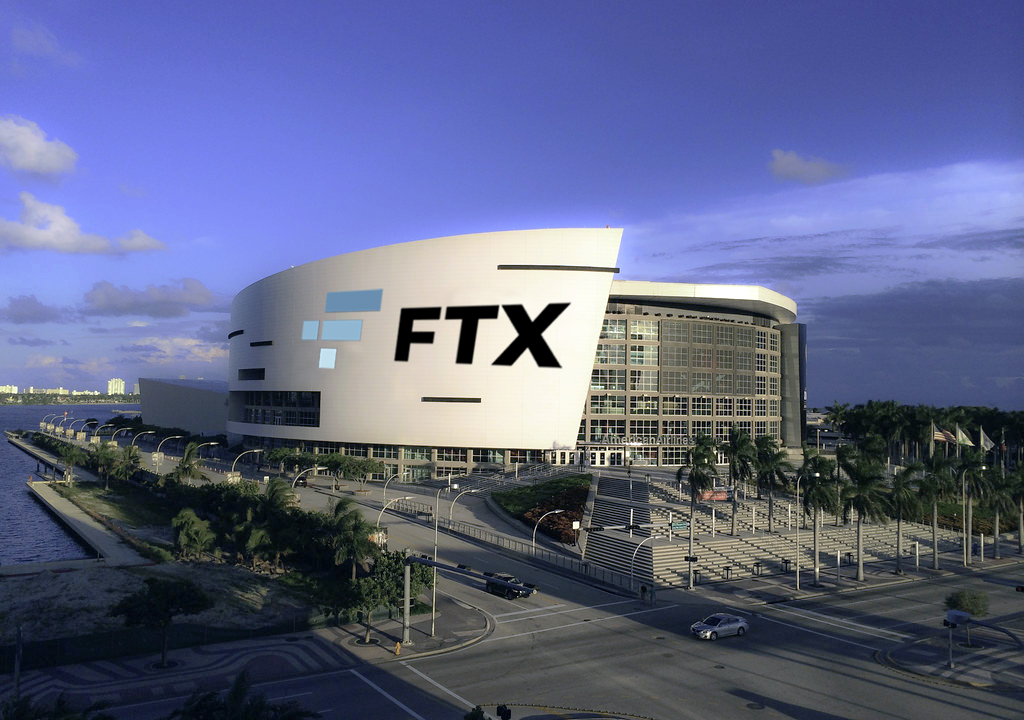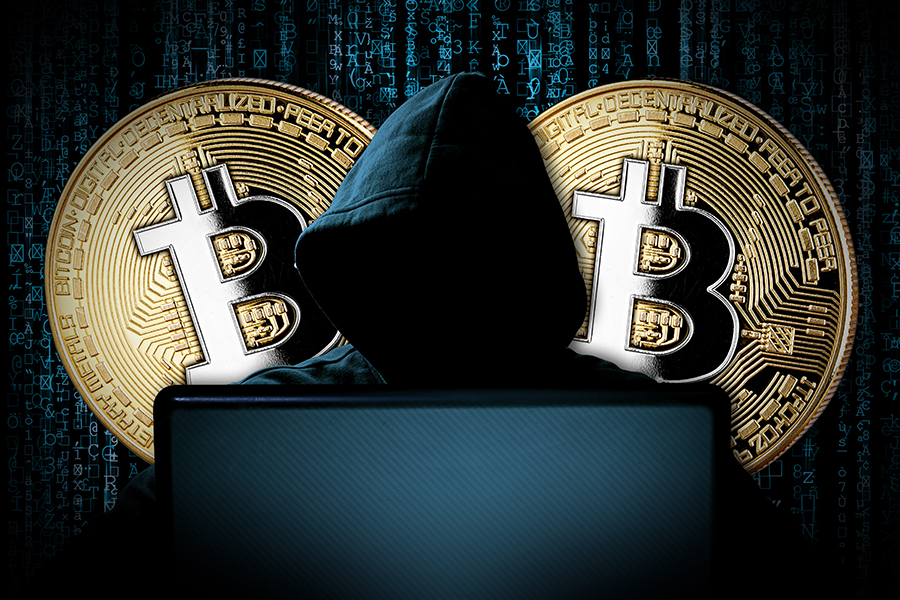Crypto enthusiasts can now HODL their crypto coins on BestChange.com, a rising platform for buying, selling, and trading virtual assets.
Launched in 2007, the company recently celebrated its 15th anniversary in June 2022 and has operated before the birth of the first publicly available decentralised cryptocurrency, Bitcoin.
Visitors to the website can exchange their digital assets in a simple, efficient new way. This will allow those new to the cryptocurrency game to circumvent difficult to navigate exchange platform interfaces and verification processes.
Another perk to BestChange.com is that it offers a wider selection of cryptocurrencies and rare tokens, where purchasers can gain access to a more diverse portfolio of coins available on the digital money market.
It also provides a safer, more secure platform for buying crypto via exchange monitoring. This is crucial for remaining secure with prized crypto wallets and avoiding fraudulent activities online.
For this, BestChange.com compiles a bespoke directory of reliable and trustworthy exchanges where people can buy, sell, or exchange some of the world’s top cryptocurrencies and digital tokens. This is possible now with numerous payment systems, including debit and credit cards.
Step-by-Step Guide to BestChange.com
For those ready to take a deep dive into the cryptocurrency exchange, here’s how to begin your digital wallet walkthrough.
To begin, users can select the left panel to select currently-owned cryptocurrencies and coins intended for purchase or exchange.
The centre section of the page will later reveal a list of trusted exchange providers, with the best rates posted at the top of the list by default.
The platform also provides a Calculator to verify exchange rates after converting funds. Users can later select a suitable exchange platform, click on the link to the website, and follow simple instructions to conduct the exchange.
Safe, Secure, Simples
BestChange.com also provides its Monitor solution, which offers an easy-to-navigate, intuitive interface that does not require any special knowledge or skills to use, making exchanging cryptocurrencies an effortless, simple task.
It also hosts a massive selection of over 250 reliable exchange platforms. These all include convenient functionality for choosing exchangers.
These are simple icons that inform users about specific conditions for exchanges, exchange information pages, reviews left by customers, and other key information.
More Crypto to Choose From
Users can also exchange cryptocurrencies without the need to verify their identity and can do so at competitive rates. People conducting transactions on the website can also choose from a huge selection of over 30,000 exchange direction pairs.
Monitor also provides offerings for cryptocurrencies, altcoins, and stablecoins such as Bitcoin (BTC), Ether (ETH), Litecoin (LTC) and many others. It also integrates e-payment systems such as PayPal, Advanced Cash, and Skrill as well as fiat currencies like cash, bank wires, Visa, and MasterCard.
Users can also buy cryptocurrencies across fiat currencies, including: USD, EUR, GBP, CNY, SEK, PLN, MDL, TRY, RUB, UAH, BYN, KZT, AMD, KGS, CAD, BGN, HUF, CZK, NOK, AZN, GEL, UZS, and TJS.
BestChange.com also gives users the option to send notifications to users for tracking exchange offers, desired exchange rates, and to verify that platforms have proven amounts of reserves.
The exchange platform also includes a converter option at the bottom of the website for easy access to tools to monitor up-to-date exchange rates.
The Need for Trustworthy Exchange Platforms
BestChange.com is one of the rising stars of the cryptocurrency world and is expected to create lasting change in a market rocked by volatility amid the recent collapse of FTX and Terra/Luna.
It is expected to build brand trust for many of the world’s cryptocurrencies, namely as multiple government regulatory agencies increase scrutiny over crypto exchange platforms.
It is now more important than ever to depend on a reliable, safe, and secure platform for monitoring the global market. BestChange.com aims to achieve this with its veteran exchange platform.
Just eight percent of Americans said they held positive viewpoints on cryptocurrency by late November, a CNBC survey found at the time.
The media outlet’s All-America Economic Survey marked plummeting sentiments on cryptocurrency following the collapse of FTX, down from 19 percent in March.
It conducted research from 26 to 30 November and surveyed 800 respondents across the United States. CNBC published the findings on 7 December.
According to the polling, negative views on cryptocurrency spiked from 25 percent to 43 percent in March and November, respectively.
A survey conducted by @CNBC shows that the percentage of Americans with a positive view on #crypto has dropped from 19% last March to only 8% this November, while the crypto 'non-fans' is up from 25% to 43%. Do you feel crypto's reputation has been hit the same way in our region? pic.twitter.com/kOOEu5RN9u
— BitOasis (@bitoasis) December 9, 2022
CNBC wrote, “[The results show a] dramatic fall for an investment that was touted as its own asset class and had a celebrated coming-out party on the global stage with multiple Super Bowl ads and celebrity endorsements: That popularity attracted many ordinary Americans to crypto and the survey shows 24% of the public invested in, traded or used cryptocurrency in the past, up from 16% in March.”
It added that roughly 42 percent of respondents had a “somewhat or very negative view” of cryptocurrencies.
CNBC explained further, “According to the survey, 42% of crypto investors now have a somewhat or very negative view of the asset, in line with the 43% result for all adults in the survey. The main difference: 17% of crypto investors are ‘very negative’ compared with 47% for non-crypto investors”
The news comes after Bitfury chief executive Brian Brook said at the CNBC Financial Advisor Summit: “90% retail market, which means the sentiment of mom-and-pop investors really matters:”
“And so when you read FTX stories on the front page of the Wall Street Journal, literally every day for the last 30 days…what it does is for relative new entrants, they get scared. [As] a result, liquidity is thinner than it would have been and people’s willingness to invest is lower.”
Negative outlooks on the cryptocurrency market come amid a series of crises that have rocked investors across the industry. Two major crypto assets – TerraUSD (UST) and Celsius – collapsed in May and July, respectively, causing cryptocurreny holders to lose massive sums of money.
Crypto exchange giant FTX also shocked investors when it collapsed on 11 November, resulting in major knock-on effects across the crypto market and triggering global investigations.
The United States Department of Justice (DoJ) has reportedly opened an investigation on claims fraud, where former FTX chief executive Sam Bankman-Fried (SBF) offshored funds days ahead of the crypto exchange’s collapse.
Bloomberg reported the federal investigation will investigate the CEO’s role in transferring funds from the exchange to the Bahamas amid its Chapter 11 bankruptcy.
The news comes just weeks after FTX faced a massive liquidity crunch, triggering a bank run on the company’s native FTT token and forcing the firm, its research wing Alameda Research, and roughly 130 affiliate groups to file for bankruptcy.
The unnamed informant cited in the article added that officials from the DoJ met FTX’s court-sanctioned management teams to discuss further investigatory plans. It will also determine if SBF had illegally transferred funds from FTX to Alameda Research, the report found.
6/ Sam was so unhinged when we decided to pull out as an investor that he launched a series of offensive tirades at multiple Binance team members, including threatening to go to “extraordinary lengths to make us pay” – we still have those text messages.
— CZ 🔶 Binance (@cz_binance) December 9, 2022
The news comes amid a massive Twitter row between SBF and Binance chief Changpeng CZ Zhao, with the former accusing the latter of lying and cancelling a potential bailout deal to rescue FTX’s operations.
Zhao slammed SBF as “unhinged,” triggering further exchanges with the latter.
He said at the time: “Sam was so unhinged when we decided to pull out as an investor that he launched a series of offensive tirades at multiple Binance team members, including threatening to go to ‘extraordinary lengths to make us pay’ – we still have those text messages.”
Courts have ordered cryptocurrency lending firm Celsius to reimburse clients with funds totalling roughly $44 million, Bloomberg reported this week.
The report noted that United States Bankruptcy Judge Martin Glenn had verbally delivered the court order, which includes custodial cryptocurrency accounts, totalling $44 million.
He stated at the time: “I want this case to move forward. I want creditors to recover as much as they possibly can as soon as they possibly can.”
The news comes after Celsius reached an agreement with advisors and stakeholders of the company that cryptocurrencies held in custody accounts belonged to users and not the platforms hosting them.
According to the court order, the mandate will apply to crypto holders that have never used Celsius Earn accounts.
Figures show that Celsius hosts roughly $210 million USD in custody accounts. Celsius Earn accounts provide interest to depositors, reaching $4.7 billion in user funds.
Currently, users cannot access these funds. Celsius has disputed claims that Earn accounts qualify for ownership due to the company’s terms of service.
At our hearing yesterday, we discussed the reopening of withdrawals for certain customers. We are approaching customer recovery in stages and we are encouraged by yesterday’s progress.
— Celsius (@CelsiusNetwork) December 8, 2022
Bloomberg reported on 5 December that the crypto company aims to sell $18 million of its stablecoins from Earn accounts to restructure.
Around the same time, a judge approved a $2.8 million key employee retention programme (KERP) filed on 11 October. This will allow employees to receive bonuses in exchange for loyalty to continue working with the company and its current limited business activities.
Reports revealed a massive exodus of employees over the last few days. The company has lost 200 employees since the platform filed for bankruptcy, with only 170 remaining.
The news comes after the FTX bankruptcy, which rocked cryptocurrency markets on 11 October, due to a massive insolvency crisis. This has cascaded across the cryptocurrency industry, leaving multiple firms short of funding and triggering investigations from US, Bahamian, and other global authorities.
Sam Bankman-Fried, the former chief executive of FTX, could face a subpoena to testify in two congressional hearings, committee chair of the United States House Financial Services Maxine Waters tweeted on Thursday.
She refuted in her recent Twitter post rumours she did not plan to force the disgraced executive to testify at a House Committee hearing, but preferred he voluntarily come forward to testify, she said.
Lies are circulating @CNBC that I am not willing to subpoena @SBF_FTX. He has been requested to testify at the December 13th hearing. A subpoena is definitely on the table. Stay tuned.
— Maxine Waters (@RepMaxineWaters) December 8, 2022
Waters wrote at the time that “lies are circulating” and that a “subpoena is definitely on the table,” just days before the hearing is set to take place on 13 December.
The “Investigating the Collapse of FTX” hearings come amid a series of hearings to probe the circumstances on the exchange’s bankruptcy and will include testimonies from Binance, FTX, and Alameda Research companies.
Ghost Mode?
The news comes after she requested Bankman-Fried to attend the inquiry in a 3 December Twitter post. The former FTX chief rejected the invitation the following day, stating he would not appear until he was “finished learning and reviewing what happened.”
He added he was “not sure” if it would take place before the hearing, making the statement shortly after joining several interviews in the media.
Waters hit back, urging Bankman-Fried on 5 December to attend due to his media appearances, stating his public comments were “sufficient for testimony.”
.@SBF_FTX, we appreciate that you’ve been candid in your discussions about what happened at #FTX. Your willingness to talk to the public will help the company’s customers, investors, and others. To that end, we would welcome your participation in our hearing on the 13th.
— Maxine Waters (@RepMaxineWaters) December 2, 2022
She continued: “It is imperative that you attend our hearing. [The Committee is] willing to schedule continued hearings if there is more information to be shared later.”
What Would a Subpoena Do?
Should the US Government force the former FTX executive to testify, courts would hold him in Contempt of Congress, earning him up to 12 months in prison and a $100,000 penalty.
A further Senate Committee on Banking, Housing, and Urban Affairs hearing is set to take place on 14 December.
In a letter this week, Senate Banking Committee chair Sherrod Brown cautioned Bankman-Fried,
“You must answer for the failure of both entities that was caused, at least in part, by the clear misuse of client funds and wiped out billions of dollars owed to over a million creditors. There are still significant unanswered questions about how client funds were misappropriated, how clients were blocked from withdrawing their own money, and how you orchestrated a cover-up.”
Letting Big Tech and other companies operate banks—without proper oversight—will open doors for predatory lending and invasions of your privacy.
— Sherrod Brown (@SenSherrodBrown) December 6, 2022
That’s why I introduced the Close the Shadow Banking Loophole Act—to protect your pocketbooks and our banking system. https://t.co/3ASxlmJa0q
Brown has also launched a crackdown on tech firms operating “without proper oversight,” leading to his Close the Shadow Banking Loophole Act, which multiple officials and media have slammed as a form of shadow banking.
Andrew Vara, the United States Trustee tasked with resolving the FTX bankruptcy, slammed the company as the “fastest big corporate failure in American history,”
The executive has urged regulators to open an independent probe to investigate the company’s collapse, reports showed.
He said in a motion on Thursday that an eight-day period in November market where debtors “suffered a virtually unprecedented decline in value.”
He cited rapid shifts in the market from $32 billion in early 2022 to an unprecedented liquidity crunch which triggered massive bank runs and later, exchange collapses.
“Was this an unsuccessful business or a successful fraud? In other words, is there anything to save here?”
— Brady Dale (@BradyDale) December 2, 2022
Andrew R. Vara
United States Trustree
In a motion to appoint an independent excaminer in the @FTX_Official bankruptcy case
He said in a statement: The result is what is linekly the fastest big corporate failure in American history, resulting in these ‘free fall’ bankruptcy cases.
Independent Investigation Urged for FTX
Acording to Vara, regulators needed to open an independent investigation for FTX, similar to other major high-profile cases, adding: “[it is] especially important because of the wider implications that FTX’s collapse may have for the crypto industry.”
He continued: “Like the bankruptcy cases of Lehman, Washington Mutual Bank, and New Century Financial before them, these cases are exactly the kind of cases that require the appointment of an independent fiduciary to investigate and to report on the Debtors’ extraordinary collapse.”
Concluding, he stated questions regarding he FTX collapse were “simpliy too large and too important” for internal investigations to tackle.
He stated such authoritise could probe the “substantial and serious allegations of fraud, diskhonest, incompetence, misconduct, and mismangement” committed by FTX, Alameda Research, and its former chief executive Sam Bankman-Fried.
Other major concerns include bank runs from customers, reclaiming losses from the exchange, and additional issues involved in the exchange’s collapse, among others.
The Aftermath of the FTX Collapse
According to current FTX chief executive John J Ray III, the firm had concealed its mishandling of customer funds with software and “a complete abscence of trustworthy financial information” that was concentrated “in the hands of a very small group of inexperience, unsophisticated” individuals.
Other authorities, including the Bahamian government and numerous intelligence agencies in the US have launched investigations against FTX after it collapsed on 11 November.
Organisations such as the US Attorney’s Office for the Southern District of New York and the Securities and Exchange Commission (SEC) have requested further information on the disgraced exchange platform.
Other global governments, including Australia, Singapore, South Korea, the United States, and many others have intervened in the aftermath of FTX.
Many governments have demanded expanded powers and controls over cryptocurrency markets with tighter regulations. Others have called for stricter licence requirements for cypto companies operating in their respective nations.
Scam bots have proliferated YouTube, with investigators recording a massive spike in fraudulent videos, data from blockchain security company CertiK found this week.
The company said it its findings that bot-based scams promised high daily returns up to 10 times, but would later steal funds contributed from users.
CertiK found in its report that a massive jump of 500 percent in 84 percent of “front running bot” scam videos, or from 28 to 168 fake over the past year.
NOVEMBER WAS WILD. 🤯
— CertiK (@CertiK) December 1, 2022
~$596M lost to exploits, hacks & scams 😮
2nd worst month in terms of FUNDS LOST in 2022 😬
$29.7M were exit scams 🚩
~$5M were Flashloans 😣
(via @CertiKAlert)
See the details below 👇 pic.twitter.com/i8LwC6h2Ph
The report noted: “There are common themes in all of these videos: free code and huge returns. Successful runners won’t give away free code on a social media site, they will sell it for a large amount on underground forums.”
According to the findings, front running involves insider knowledge of unconfirmed transactions to trade, leading to massive profits.
Bots would later steal assets from users attempting to conduct front-running transactions. They can also scan for unconfirmed transactions by analysing blockchain contents, then pay higher gas fees to advance transactions ahead of others.
Scammers also offered fake tutorials on using the bots, but would also spam comment sections with positive reviews.
Scam Bots, Sham Businesses
According to Bitcoin.com, the rise of trading bots have contributed to immense speculation in the cryptocurrency market, with many promising winning trades or higher returns. Many novice crypto traders have lost significant money to these devices.
The report cited a South African Mirror Trading International (MTI) scam, which stole from tens of thousands of people on claims the bots could earn users consistent returns.
South African and US-based regulators later cracked down on MTI investments, with the company later collapsing after its chief executive Johann Steynberg disappeared with investors’ money. The platform failed to provide high returns and was written off as a scam enterprise.
Two central bank governors from the Bank of Thailand (BOT) discussed the future of decentralised finance at a recent event in Thailand.
Representatives from the Bank of Thailand (BOT) and the Bank for International Settlements (BIS) hosted the event.
Panel talks featured Eddie Yue, CEO of the Hong Kong Monetary Authority, Bank of Korea governor Changyong Rhee, and Reserve Bank of New Zealand governor Adrian Orr, and BIS Innovation Hub chief Cecilia Skingsley.
The panel explored central bank digital currencies (CBDCs) and other digital assets. Yue kicked off the talks stating thta stablecoins and CBDCs offered greater, more cost effective benefits for conducting transactions.
Despite this, risks still posed problems for any new financial technology, he added. Continuing, he stataed that blockchain’s decentralised nature created greater challenges for on-chain security. Later, he urged financial regulators to focus on off-chain activities.
Speaking to the audience, he explained that regulators could start by monitoring off-chain activities “like regulating virtual asset exchanges.”
He added: Hong Kong will soon introduce not just [anti-money laundering] aspects but also investor protection.”
The Hong Kong government aimed to create further regulations to build global standards on how to regulate stablecoins, he concluded.
A New Hope for Crypto?
Hitting back, Rhee sad ihe did not see an optimistic future with namely monetary blockchain technologies due to the ongoing FTX and other crises harming the industry.
He cautioned whether the market saw the “benefit of the technological development recently,” citing the ongoing FTX collapse.
Concluding, he said: “I was more positive before, but after seeing the Luna, Terra, and now the FTX issues. I don’t know [if] we will see the real benefit of this new technology, at least for monetary policy.”
The news comes after ther BOT-BIS Conference took place on Friday at the Bank of Thailand on the 80th anniversary of the former bank.
Global leaders gathered to discuss crucial developments among central banking institutions. Key topics included inflation, the global economic crisis, emerging technologies, fintech, and climate change, among others.
Meta Platforms chief executive Mark Zuckerberg remains positive about his firm’s metaverse ambitions despite recent events leading to billions in lost revenues.
He stated in a recent interview at the New York Times DealBook Summit on Thursday that “someone has to build [the Metaverse].”
He explained further: “I think things look very different on a ten-year time horizon than the zone that we’re in for the next few years […] I’m still completely optimistic about all the things that we’ve been optimistic about.”
Despite the major setbacks, he added that “seeing things through” would involve “powering through” doubts on its ambitions and remaining hopeful.
The news comes after Meta’s third quarter (Q3) earnings revealed record-breaking losses for its Reality Labs division, costing $9.44 billion in 2022 and leading to over $10 billion in losses last year.
At the event, he reaffirmed the Metaverse would become the next computing platform, adding: “We’re not going to be here in the 2030s communicating and using computing devices that are exactly the same as what we have today, and someone has to build that and invest in it and believe in it.”
He also stated that his company recently laid off 11,000 workers in early November amid “massive investments” in hardware such as its recent Meta Quest Pro device.
Zuckerberg also admitted Meta Platforms believed the economy and its business operations would “go in a certain direction,” citing eCommerce business performance due to COVID-19 last year.
“Obviously it hasn’t turned out that way,” Zuckerberg said.
Continuing, he added: “Our kind of operational focus over the next few years is going to be on efficiency and discipline and rigor and kind of just operating in a much tighter environment.”
Investments in Meta, Restrictions on Apple
He assured the audience that four-fifths of Meta’s investments remained in its suite of social media applications such as Facebook, Instagram, and WhatsApp, among others. Reality Labs only comprises “less than 20 [percent]” of investments “until the Metaverse becomes a larger thing,” he explained.
40 percent of total Reality Labs investments funded its virtual reality (VR) head-mounted displays and the second half for its “long-term most important form factor,” or smart glasses.
He later slammed Apple for restricting ad revenues on its App Store along with restrictions on cryptocurrency exchanges and non-fungible tokens (NFTs).
Slamming the Cupertino-based firm, Zuckerberg said, “I do think Apple has sort of singled themselves out as the only company that is trying to control unilaterally what apps get on a device and I don’t think that’s a sustainable or good place to be.”
He concluded: “I do think it is it is problematic for one company to be able to control what kind of app experiences get on the device.”
United States Commodity Futures Trading Commission (CFTC) chief Rostin Behnam commented that Bitcoin is the only crypto-based commodity to date, while speaking to an audience at an event at Princeton University.
In a Fortune report, the publication cited Benham’s comments, which contradicted his positive sentiments on Ether as a commodity. According to the interview, he aimed to explain whether a crypto asset was a commodity or security.
Today at Princeton, CFTC Chair Rostin Behnam said that the only cryptocurrency that should be viewed as a commodity is #Bitcoin, walking back from previous remarks made in October when he suggested Ether may also be a commodity.https://t.co/o5NrejDVaU
— Michael Saylor⚡️ (@saylor) December 1, 2022
In the US, Republican lawmakers have slammed the Securities and Exchange Commission (SEC) chairperson of collaborating with the now-bankrupt FTX to “obtain regulatory monopoly.”
Despite this most do not consider Bitcoin a security due to its decentralisation. The news comes after SEC officials targeted Ripple with a massive lawsuit, sparking backlash from blockchain advocate groups such as the Blockchain Association.
SEC Ties to FTX
Conversely, the SEC has been similarly lambasted due to links with FTX. The Digital Commodities Consumer Protection Act (DCCPA) provided the CFTC with oversight capacities, with the CFTC exec defending the Committee’s actions.
He said that it had limited oversight powers and slammed authorities for creating a “matrix of regulators.” The leader also urged better collaboration to manage the growing number of regulations on crypto.
Following the statements, Benham attended a congressional hearing on Thursday to explore the downfall of the FTX exchange, triggered by massive liquidity instability and a major bank run on the FTT cryptocurrency.
Global Crypto Crackdown?
The news comes as the United States, Bahamian, South Korean, Singaporean, and Australian regulators launch a heavy crackdown on crypto platforms to regulate their activities.
Many governments have reconsidered the stability of some cryptocurrencies and aim to require licences of operation for crypto firms in their respective countries, among other measures.











